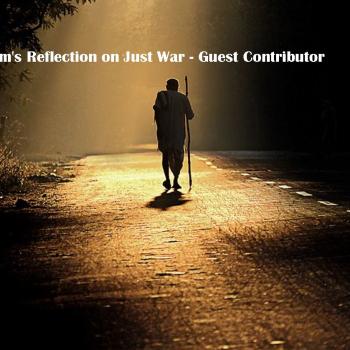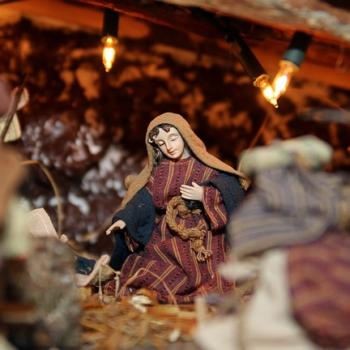After the congregation stands, Ezra "blesses YHWH, the great God, and all the people answered, 'Amen, Amen,' lifting up their hands" (Neh. 8:6). This latter practice is the famous orans position for prayer, hands upraised. Many more evangelical worshippers have adopted this position as an attitude of prayer, and it derives from very ancient practice, as the scene makes clear. And after that prayer, "they bowed their heads and worshipped YHWH with their faces to the ground" (Neh. 8:6). This sounds something like the practice of the prayer of Islam. And since Muhammad grew up in communities containing many Christians and Jews, it is likely he learned that practice from them.
Reading in Community for Strength and Accountability
Long lists of names are given in the text, persons who accompanied and assisted Ezra in the task of expounding Torah. The names are left out of our reading (too hard to pronounce?), but their role is crucial. They "helped the people to understand the Torah, while the people remained in their places. They read from the book, from the Torah of God, with interpretation. They gave the sense, so that the people understood the reading" (Neh. 8:7-8).
Please note what is said here. Ezra reads the Torah, but his two groups of thirteen aides are those who "read with interpretation," "giving the sense," so that "the people understood the reading." Merely reading Torah is not enough; we must have help in understanding it, and great figures on their own are not sufficient for that task. Bible reading is a communal act, never an individualistic one only. To understand Scripture one needs help, and one needs community. This wonderful scene affirms that conviction.
But just what are we to learn from the reading and its understanding? After Ezra calls the day of the reading "holy to YHWH your God," he admonishes the people not to weep, since upon hearing and understanding the Torah, they all began to cry. Why? Why should reading the Scripture bring on tears, and why does Ezra urge them to dry their eyes? The key, I think, is in Nehemiah 8:10: "Go your way, eat the fat and drink sweet wine and send portions of them to those for whom nothing is prepared, because this day is holy to YHWH; do not be grieved, for the joy of YHWH is your strength."
I think the hearers weep, because they realize that they have not fully understood what the Scripture and YHWH have been asking them to do. Eating the fat and drinking the wine is not enough. They are always to share what they have with those "for whom nothing is prepared," namely with those who are poor, who have no access to fat and sweet wine, those who are widows and strangers and orphans, those who are immigrants in their land. They weep, because they realize that YHWH wishes good things for all YHWH's people, not just these privileged ones in Jerusalem.
Perhaps it would be important for us to weep more when we hear the words of the Scriptures, when we are admonished to feed the hungry and clothe the naked, and visit those in prison. And then, as Ezra says, when we remember these duties we ought dry our eyes and experience the joy of YHWH who is always our strength. Thus can good Bible reading do; it can open our eyes to the realities of our world and send us forth in service and joy.





